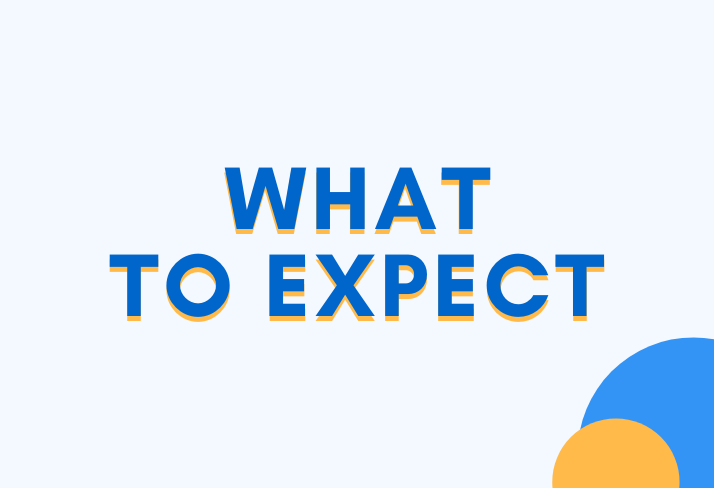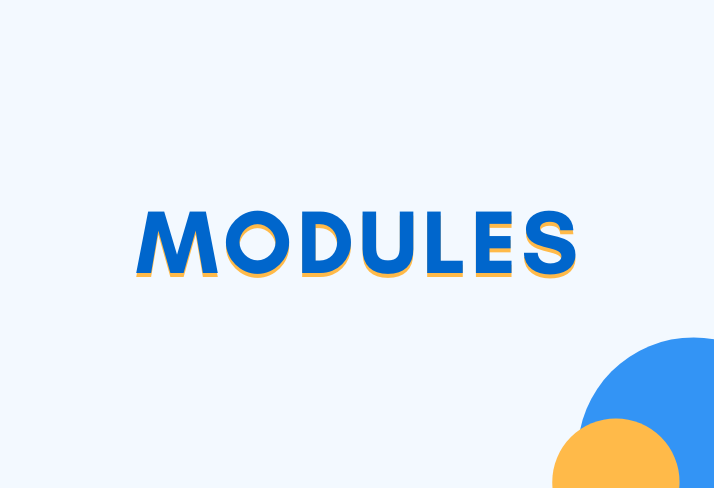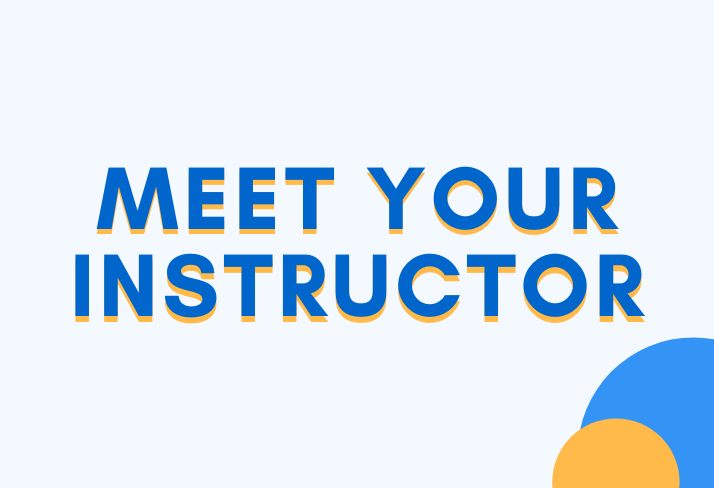Designing blended instruction
Returning in 2022; dates TBD
Returning in 2022; dates TBD
Earlier this year, educators around the world rapidly altered their teaching practices to accommodate the transition to remote learning. The circumstances surrounding this transition left many with little opportunity to prepare for effectively engaging their students online. As we've navigated the uncertain landscape of teaching and learning over the past year, we have shifted from managing a pandemic pedagogy to preparing for what will inevitably become the next normal. We must continue to consider best practices for instructional design and student engagement, and prepare to maximize learning experiences, no matter the setting.
This online course, comprised of eight modules, will break down the differences between in-person and remote pedagogy, support you with the design and implementation of blended learning models, and equip both teachers and school leaders with the tools needed to create a 21st century pedagogy.
This online course, comprised of eight modules, will break down the differences between in-person and remote pedagogy, support you with the design and implementation of blended learning models, and equip both teachers and school leaders with the tools needed to create a 21st century pedagogy.
|
x
Best Practices for Blended Learning is an 8-week, asynchronous online course. You'll be able to move through this course at your own pace, with no expectation to be online at specific times.
This course is designed to allow for approximately 2 hours of participation per week. While you can interact with each module as often as you'd like, we find that 2 hours per week / 1 module per week works best for participants. Throughout this course, you'll be able to:
Is this course right for you? Best Practices for Blended Learning welcomes all K-12 educators, but is best for those who are:
Still have questions? Check out our FAQ. |
x
Each module includes the following elements:
*Must be completed to earn CTLE credits Introduction to best practices for transitioning to blended learningEducators around the world have rapidly transitioned from in-person to remote teaching, under extremely challenging circumstances. How can we redesign instruction to build the best of both worlds? Engagement is Everything: Three pillars of student engagementStudent engagement is everything — in-person and online — but moving away from simple compliance to intellectual engagement can be a challenge. How can we redesign our approach to academic, social, and intellectual engagement? A Good Hook: Strategies for openingsA good hook is a great way to capture the curiosity and creativity of our students. What are the best practices for introducing a lesson in-person, and online? Talk to Me: Strategies for direct instructionThe mini-lesson is a critical moment where teachers provide direct instruction to new content or skills, address common questions, and anticipate obstacles to learning. What are the best practices for direct instruction, in-person and online? Keep the Kids Talking: Strategies for student-to-student discussionStudent-to-student discussion is essential for students to think critically, consider multiple perspectives, and learn from their peers. What are the best practices for student-to-student discussions? Differentiating Like a Star: Differentiated instructionWe differentiate instruction when we anticipate multiple entry points for learning and design a pathway for diverse learners. What does it mean to differentiate instruction in-person and at a distance? Assess for Success: Formative assessments & feedbackAssessments are key moments when teachers can learn about what their students know and can do, and identify the next steps for learning through actionable feedback. What are the best practices for formative assessment & feedback? Creating Closure: Projects, publications, and performancesSummative assessments help teachers understand students’ content knowledge and skills at the end of a learning sequence. What are the best practices for summative feedback? |
x
Dr. Kang was a high school English teacher for eight years in Denver, Colorado and New York City. She wrote several district wide curricula for Denver Public Schools and the NYC Department of Education before transitioning from classroom teacher to professional development coach in 2006. As a coach, Roberta has supported schools on instruction, assessment, systems and structures, literacy and accountability mandates. In 2015, Roberta completed her doctorate in English Education from Columbia's University, Teachers College with a focus on the impact of mandated assessments on students, teachers and school leaders. In her role as CPET's Center Director, Roberta supervises the professional development programs and initiatives projects across the Center. Roberta cultivates partnerships with schools, districts, and organizations, in critical areas such as developing academic rigor, refining literacy in high school, creating meaningful instruction for high-stakes assessments, and leveraging city and state mandates for authentic school change. You can reach her at [email protected]. |
Registration
Where do I enter my promo code?
Click the blue text below that says "Enter promo code". Enter your code, and click "Apply". From there, you can continue with your registration as usual.
Promo codes must be entered before you begin registration; there is no option to add it after you click the "Checkout" button.
Promo codes must be entered before you begin registration; there is no option to add it after you click the "Checkout" button.
FAQ
Registration
What are CTLE hours, and should I register for them?
Beginning in 2016, a registered holder of a NYS professional classroom teaching certificate, educational leadership certificate, or Level III teaching assistant certificate is required to successfully complete 100 Continuing Teacher and Leader Education (CTLE) hours. Teachers College is a state-approved provider of CTLE hours, and participants can earn up to 16 hours for participating in this opportunity. Participation will be verified before CTLE credits are awarded.
CTLE information must be included on your registration form. If you decline CTLE hours at the time of registration and change your mind afterward, you'll need to contact us prior to the start of this course. Once you begin, we'll be unable to accommodate new CTLE requests.
CTLE information must be included on your registration form. If you decline CTLE hours at the time of registration and change your mind afterward, you'll need to contact us prior to the start of this course. Once you begin, we'll be unable to accommodate new CTLE requests.
Do you offer custom or private versions of this course?
Yes! If you're interested in this topic and would like to tailor the course content to meet the needs of your school community, we can create a customized version for you and your team. Only members of your school community (identified by you) will have access to the customized course, and you'll retain access to course materials indefinitely, allowing you to revisit content as needed.
To explore this option, reach out to us at (212) 678-3161 or [email protected] to speak with someone from our coaching team. We look forward to hearing from you!
To explore this option, reach out to us at (212) 678-3161 or [email protected] to speak with someone from our coaching team. We look forward to hearing from you!
Is there a New Teacher Network membership discount available for this opportunity?
No, this opportunity is not eligible for an NTN member discount. You are welcome to register & participate in this course after paying the registration fee, or you can visit our PD Opportunities page to see other opportunities where your discount will apply.
Can I pay for my registration with a purchase order?
Absolutely! Have your school contact [email protected] to initiate this process.
In your message, please make sure to provide:
This information will allow us to provide you with the documentation needed to create a PO. This documentation will include our vendor & DOE contract numbers.
Once we receive a PO, we will provide your school with a promo code to distribute to the teachers they are funding. The promo code will allow you to bypass Eventbrite's payment section, so that there is no out-of-pocket cost to you. You will still be required to complete a registration form.
In your message, please make sure to provide:
- your school name & address
- contact information (name & email) for the person who handles POs & payments at your school
- the number of teachers interested in registering for this opportunity
This information will allow us to provide you with the documentation needed to create a PO. This documentation will include our vendor & DOE contract numbers.
Once we receive a PO, we will provide your school with a promo code to distribute to the teachers they are funding. The promo code will allow you to bypass Eventbrite's payment section, so that there is no out-of-pocket cost to you. You will still be required to complete a registration form.
I have a promo code — where do I enter it?
Please see the blue text in the registration section that says "Enter promo code". Click that text, enter your code, and click "Apply". From there, you can continue with your registration as usual.
This course has already started. Can I still register?
Yes! You can register through July 19, 2021.
How do I change or cancel my registration?
If you need to change or cancel your registration for any reason, contact us at [email protected].
If you choose to cancel your registration, we will be able to offer you a refund as long as you have not yet accepted the invitation to join the course.
If you choose to cancel your registration, we will be able to offer you a refund as long as you have not yet accepted the invitation to join the course.
Access & participation
How do I access this course?
If you register before July 12, you can expect to receive the invitation by the time the course begins.
If you register after the course has already started, you can expect to receive the invitation within 48 business hours of registration.
Once you've registered, you will receive an email invitation to join our digital platform from Teachers College Canvas. From there, you will be able to set up a username and password.
Course materials will be accessible immediately following your acceptance of the invitation.
If you register after the course has already started, you can expect to receive the invitation within 48 business hours of registration.
Once you've registered, you will receive an email invitation to join our digital platform from Teachers College Canvas. From there, you will be able to set up a username and password.
- Go to MyTC Portal (my.tc.columbia.edu)
- Click on the "Non-UNI Canvas Login" link
- Enter your email and password. If you didn't create one or have forgotten, simply click on the "Forgot Password?" link on the Canvas login page
- On the Canvas dashboard, accept any course invitations, if prompted
- You may also access the course on your mobile device through the Canvas Student App
Course materials will be accessible immediately following your acceptance of the invitation.
What does a module include?
Each module will include the following elements:
*Must be completed to earn all CTLEs
- Instructional talks: A series of 3-4 short videos that break down the topic, provide examples, pose questions, and invite further reflection.
- Key resources: Downloadable resources for you to read, review, or use in your instruction.
- Discussion prompt*: Each module will pose a reflection question, which you can respond to using the discussion board. We want to hear from each person in the discussion board at least one time, and want each person to respond to a minimum of two other posts.
- Assignment*: Practical, hands-on assignments that will help you implement the content of the module and reflect on your experiences.
*Must be completed to earn all CTLEs
How much time will it take me to complete this course?
This course is designed to allow for approximately 2 hours of participation per week. This course runs for eight weeks, and includes a total of eight modules. While you can move through the course at your own pace, we find that 2 hours per week / 1 module per week works best for participants.
Will I be expected to be online on specific days / at certain times?
No; this course is asynchronous. You can move through each module at your own pace.
How do I earn CTLE credits?
CTLEs are based on participation and completion of the course assignments and discussions. Completion of a task equals 1 CTLE credit.
Do I need to complete this course by a specific date?
All modules must be completed by the end of the course — September 5, 2021 at 11:59pm.





